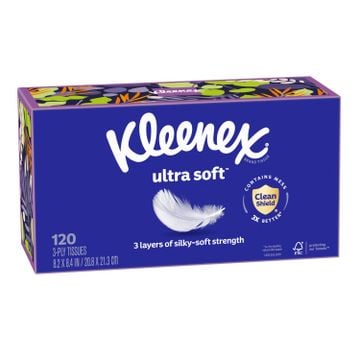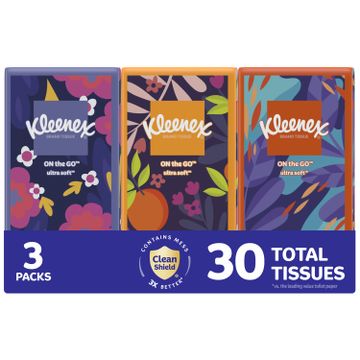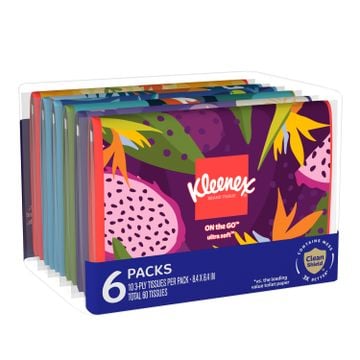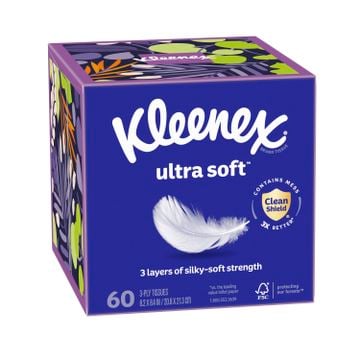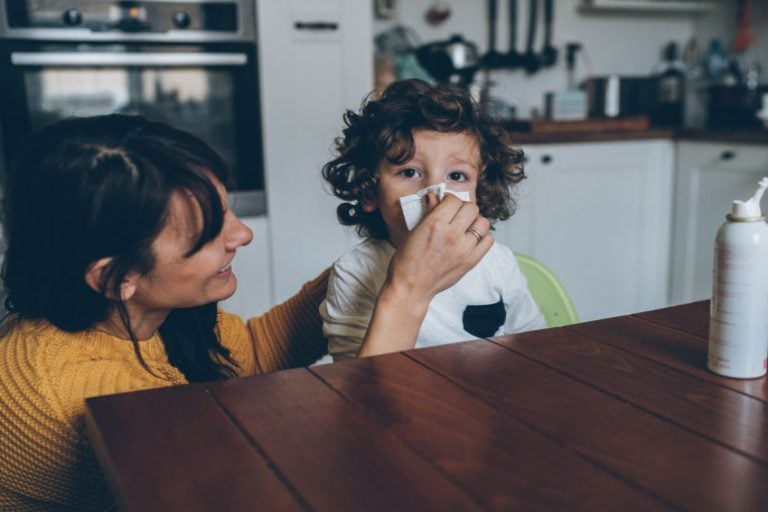
Seasonal allergies in children are caused by allergens from grasses, and less commonly trees and plants. This often affects children, as while it is typically thought of as a summer complaint, the pollen season in the US can start as early as January in some southern states1.
A study2 in partnership with Kleenex® found that 84% of children with seasonal allergies experience symptoms more than once day per week between April-August, and 75% experience symptoms every year.
So, whether your child has experienced symptoms before or not, it’s best to be prepared early in the year to be ready to help them as much as possible. With the help of our partners, we’ve put together a useful guide with advice and tips, from medication to exposure to allergens.
Tips for supporting your child and helping their peers understand the situation:
It is especially helpful if children can feel that their peers understand their symptoms and the impact that their condition can have on their lives.
Tips for supporting your child:
- Remember to praise older children after medication, as medication can also be uncomfortable for them
- Mentioning to others how well your child is coping while they are present can boost their self-esteem and make them more compliant
- If giving eye drops to young children, it can be helpful to have something with which you can distract the child once the eye drops have been given, for example, letting your child put a star on their chart
- It can be helpful to role play with a younger child using a doll, telling them what is going to happen and letting them repeat the procedure on their doll after having their own eye drops administered
- To get your child to co-operate with their treatment you could try distraction techniques such as inventing a specific game, for example, I-spy or a word game, that can be played while you do it
Tips for reducing exposure to allergens:
It can be tricky to know how to minimize your child’s contact with allergens. Try out these tips:
- Stay indoors until after noon (if possible). This will reduce exposure to high pollen levels.
- Try to avoid going out on windy days or after thunderstorms.
- Wear sunglasses to protect the eyes.
- Shower on arriving home.
- Stay inside when the grass is being mown.
- Keep windows closed both at home and particularly when in the car (and where possible use re-circulating air conditioning in the car).
- Do not picnic in parks or in the country during the pollen season.
- Try to plan family holidays out of the pollen season, or vacation at the beach.
- If the child is sensitive to weeds or trees that are outside the bedroom window, have them removed.
- Carry a supply of tissues.
Kleenex® Ultra Soft™ tissues are perfect for the allergy season.
Tips for handling allergies at school:
Seasonal allergies can make school life difficult for young people, particularly during the summer months.
Allergy symptoms such as sneezing, an itchy/blocked/runny nose and itchy/inflamed/streaming eyes, can lead to disrupted sleep which impacts alertness and the ability to concentrate. The symptoms are often unpleasant and, in a classroom, can be extremely difficult to manage.
It is common for children with asthma to also have seasonal allergies. If this is the case then it is important that seasonal allergy symptoms are well managed with the correct treatments and medication, as there is an increased risk that uncontrolled allergies may impact asthma, exacerbating asthma symptoms and increasing the risk of an asthma attack.
Here are some tips to help your child get through the school year:
- Use a daily, non-drowsy antihistamine which come in both liquid and tablet form.
- Monitor pollen forecasts which can help indicate when to start taking allergy medications and can help with planning time spent outside.
- If you do drive children to school, keep windows closed and have the air conditioning on re-circulate to prevent pollen exposure inside.
- Ask teachers to keep windows closed to avoid to your child being exposed to pollen in their classroom.
- Invest in a pair of wraparound sunglasses and a hat for your child to keep allergens out of their eyes and off their face when they are outside.
- Help your child get a good night’s sleep by keeping windows closed overnight in their bedroom.
- Make sure your child’s allergy medication is available throughout the day.
Playing outside can also cause a lot of worry for children living with severe seasonal allergies and asthma. Here are some tips to help your child's symptoms when taking part in outdoor activities:
- Ask the school if some PE lessons can remain inside, in the school sports hall, when pollen counts are high.
- Ask the school if they can avoid outdoor activities being scheduled early mornings and evenings, when pollen counts are higher.
- Encourage your child to wear protective glasses and a hat with a peak or large brim to help keep pollens from their eyes and face.
- Make sure your child has their allergy medication with them and it is accessible wherever they are exercising.
- Give your child a separate bag for their sports clothes to contain the pollens carried on them.
- If you have any concerns speak to your child’s school as they may be able to make special arrangements.
Tips for medication
Medication can be used to manage seasonal allergy symptoms in children. Types of medication that can be prescribed for children include:
- A liquid or syrup form of antihistamine for small children.
- Tablet form of antihistamine for older children.
- Nasal sprays and eye drops containing antihistamine. These can help to soothe irritated noses and eyes.
You should consult your primary care doctor for more information on treatments and medication to find out which ones are suitable for your child and their symptoms.
If allergy medication is not improving symptoms, consider if your child is taking it correctly and regularly (keeping it near to a toothbrush can help your child to remember to take it).
Don’t suffer in silence as there are many different treatment options available to help alleviate allergy symptoms. Speaking to a doctor is a good place to start for the treatment of seasonal allergies.
All content and advice is provided on behalf of Allergy UK in partnership with Kleenex®.
2.Research details:
In March and April 2021, 7,242 respondents were contacted by Sapio Research. Results on the incidence of hay fever are taken from looking at the proportion of people that were screened out of the survey versus those who continued because they suffered with hay fever (3,541).
The full survey with sufferers was then conducted among 3202 Hay fever sufferers and 339 Parents with children who suffer from hay fever, from an initial 7,242 respondents. Interviews were conducted online by Sapio Research in April 2021 using an email invitation and an online survey. Results of any sample are subject to sampling variation. The magnitude of the variation is measurable and is affected by the number of interviews and the level of the percentages expressing the results. In this particular study, the chances are 95 in 100 that a survey result does not vary, plus or minus, by more than 1.4 percentage points from the result that would be obtained if interviews had been conducted with all persons in the universe represented by the sample.
